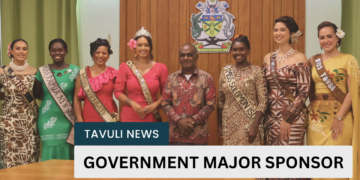The Miss Pacific Islands Pageant controversy highlights due process concerns after a judge was issued a stop order in Solomon Islands.
EDITORIAL
The Miss Pacific Islands Pageant held in Solomon Islands was an opportunity to celebrate culture, beauty, and talent. However, the event was marked by controversy ending with the stop order issued against all regional judges, including Jerry, the head judge, preventing them from leaving the country. This issue raises important questions about due process, governance, and the appropriate channels for addressing disputes.
As a news media organization, we chose to highlight this issue not to detract from the success of the pageant or the performance of the contestants but to emphasize the importance of justice and proper procedure. Some commentators have criticized this focus, calling it negative. However, our role is not just to report celebrations but also to hold institutions accountable and ensure that justice is upheld. The stop order and the subsequent online abuse directed at the judges highlight a deeper issue—due process was bypassed, and individuals were unfairly targeted without proper channels of redress. This is akin to putting the cart before the horse, making judgments before facts are properly established.
Independent legal experts have clarified that no crime was committed by the judges. The matter falls under the jurisdiction of the pageant’s governing board rather than the Solomon Islands government. While concerns about the judges’ actions may exist, established systems and procedures should be followed to ensure a fair resolution. If formal structures for grievance redressal do exist, they should be made clearer and more transparent to all stakeholders to avoid such disputes in the future. Government intervention in this case risks setting a precedent that could impact future events and governance practices.
International law provides guidance on such matters. Article 13 of the Universal Declaration of Human Rights states that “everyone has the right to leave any country, including his own, and to return to his country.” Additionally, the International Covenant on Civil and Political Rights (ICCPR) emphasizes that restrictions on movement should be legally justified and not arbitrary. Ensuring adherence to these principles is crucial in upholding due process and fairness.
This incident highlights the need for a structured approach to addressing disputes in future pageants. If mechanisms for grievance redressal already exist, their effectiveness should be reviewed and strengthened. Without clear procedures in place, there is a risk of individuals being unfairly targeted and reputations being damaged without recourse.
Moving forward, this also calls for a comprehensive review of the Miss Pacific Islands Pageant and how it is organized. Host governments invest millions of dollars in staging this event, and it is only right and fitting that they have a say in ensuring that the process is fair, transparent, and well-managed. A thorough evaluation can help identify areas for improvement and ensure that future editions of the pageant uphold the values of justice, integrity, and good governance.
The Miss Pacific Islands Pageant showcased remarkable talent and organization while also revealing areas for improvement. Upholding fairness and legal principles in such matters strengthens trust in institutions and ensures that all parties are treated justly.














































































